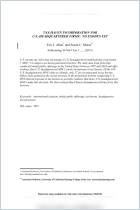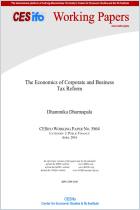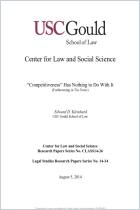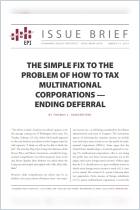
Read offline
Recommendation
The inexorable mystique of Silicon Valley entrepreneurs working long hours in cramped quarters has captured the public’s imagination. Indeed, much of America’s fascination with start-up culture lies in understanding what drives creative entrepreneurs to sacrifice so much for the process of invention. In this Florida Tax Review article, professor Susan C. Morse takes her analysis back one step in a company’s history so she can address a more fundamental question: How and why do start-ups initially decide to incorporate in a certain country and, if in the United States, in a certain state? While Morse’s article focuses on how tax considerations affect start-ups’ decisions regarding incorporation locales, it also provides a broader scope. Morse details a diverse range of factors that could influence the next Steve Jobs or Mark Zuckerberg, including corporate governance, intellectual property and concerns over liquidity. getAbstract recommends this article to entrepreneurs, finance professionals, accountants, business strategists, and anyone who may take an interest in the operational and tax policy minutiae of start-ups. Although the article is definitely a profitable read, less-initiated readers should come armed with a dictionary of technical tax terms.
Summary
About the Author
Susan C. Morse is an assistant professor at the University of Texas School of Law.


















Comment on this summary or Démarrer une discussion